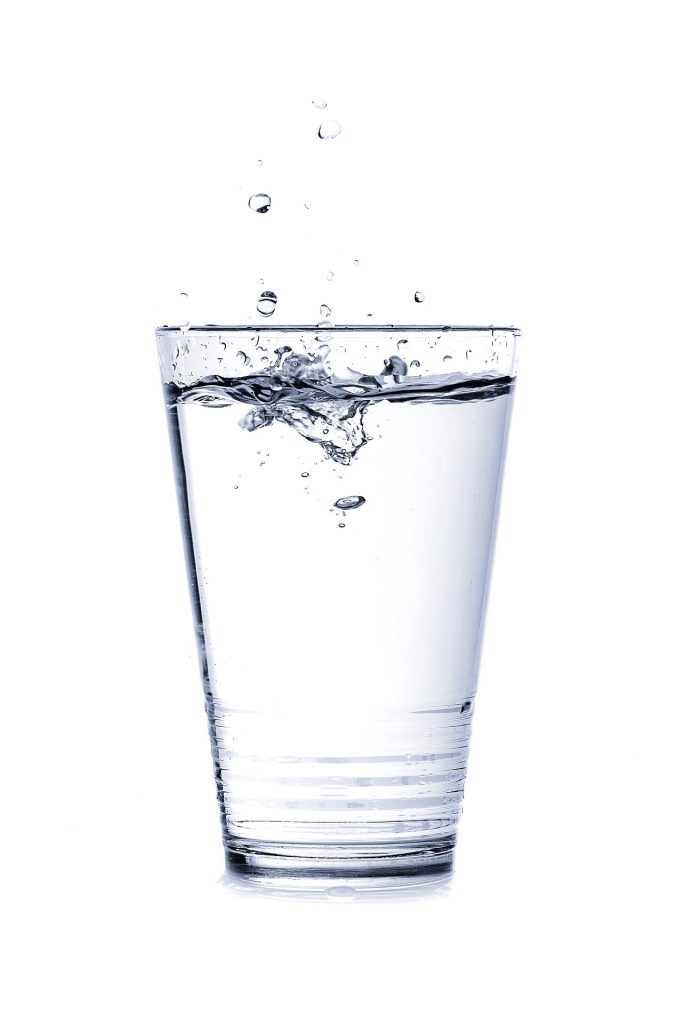How Much Water Should I Drink?

For such a basic question, there is a surprising amount of confusion and misinformation. Water needs vary by a person’s health status, sex, climate and activity level. To better understand water requirements, it is first worth establishing how much water we lose, on average, per day.
Daily Water Losses
We lose water through urine, stool, sweat and breath. Even if you aren’t physically active, there is still water loss through the skin.
On a daily basis we lose the following amounts of water (Sawka 2005):
- 250-350 mL from breathing
- 500-1000 mL from urine
- 100-200 mL in stool
- 450-1900 mL from the skin
- 455-3630 mL for active individuals from sweating
And, on the flip side, we gain approximately 250-350 mL from the metabolism of our food.
For non-active individuals, this equates to a water loss of between 1050 and 3100 mL per day. For active individuals this increases to between 1550 and 6730 mL of water per day. In order to maintain fluid balance an individual would need to consume these amounts of water from all sources, including food and beverages on a daily basis.
Estimating Needs from Blood Concentration
A separate way to estimate water needs comes from the concentration of the blood or blood “osmolality.” This number represents how concentrated or dilute an individual’s blood has become which gives an accurate estimation of water needs. Based on serum osmolality measurements, younger men are estimated to need 3.7 liters of water and younger women 2.7 liters of water per day on average (Rosinger 2016). Again, these numbers are for total water consumption from all sources, not just pure water.
So, How Much Do I Need to Drink?
On average, we get around 20% of water from food. As such, men should drink approximately 3 liters of fluid a day and women should drink approximately 2.2 liters of fluid a day. Beverages, including coffee, tea, juice, milk and others all count towards this water balance. This equates to around 12.5 cups of fluids for men and 9 cups for women. If you are actively sweating, these water needs obviously increase.
Another simple estimate as to an individual’s water needs is through urine concentration. If your urine is dark yellow, or highly concentrated, it’s a strong indication that you aren’t drinking enough water. In cases of concentrated urine, you should increase your fluid intake.
What About the Dehydrating Effects of Caffeine?
It is often argued that caffeinated beverages, like coffee and tea, increase water needs through their effects on increasing urination. While caffeine does increase urine output transiently, if your coffee or tea consumption is consistent on a daily basis, your body adjusts.
Studies have found that the consumption of up to 400 mg of caffeine per day does not contribute to dehydration (Ruxton 2008). This means that drinking up to about four cups of coffee or eight cups of tea per day does not contribute significantly to water losses. Both coffee and tea can be counted towards an individual’s total water intake.
Can You Drink Too Much Water?
While rare, it is possible to drink too much water. In excess, too much water can be lethal. With excessive consumption, the blood can become too dilute. Cases have been documented where an individual drank an excessive amount of water in a short period of time and died from water intoxication. Consumption of at least 5 liters of water (although more typically 10-20 liters) over just a few hours can lead to water intoxication and death (Gardner 2002). Generally, even highly active individuals only need around 6.5 liters of water in total per day (Sawka 2005).
The Risks of Dehydration
Not consuming enough water or fluids on a regular basis can lead to dehydration. As we age, the risks for dehydration increase. Estimates suggest that 17-28% of older adults are dehydrated (Weinberg 1995). For individuals with dehydration due to water loss, there is an association with increased death and disability (Hooper 2014). While not proven to be causal, maintaining adequate hydration may still help to avoid the risks.
Dehydration is known to deteriorate both physical and mental performance, although the effects on mental performance are more prevalent in children and older adults (Maughan 2003, Pross 2017). Mood also deteriorates with dehydration (Masento 2014). In addition, dehydration increases pain perception, potentially worsening chronic or acute pain symptoms (Ogino 2014).
The gastrointestinal tract also requires water to function. Mild dehydration increases the risk for constipation (Arnaud 2003).
Conclusion
While people are often told to consume eight eight-ounce glasses of water a day, this isn’t necessary if you are getting adequate water intake from other sources. However, water needs are still fairly substantial and it’s likely a lot of individuals are not consuming adequate amounts. In some situations, it may be worth checking water and fluid consumption to confirm adequate intake to avoid the health problems associated with dehydration.



